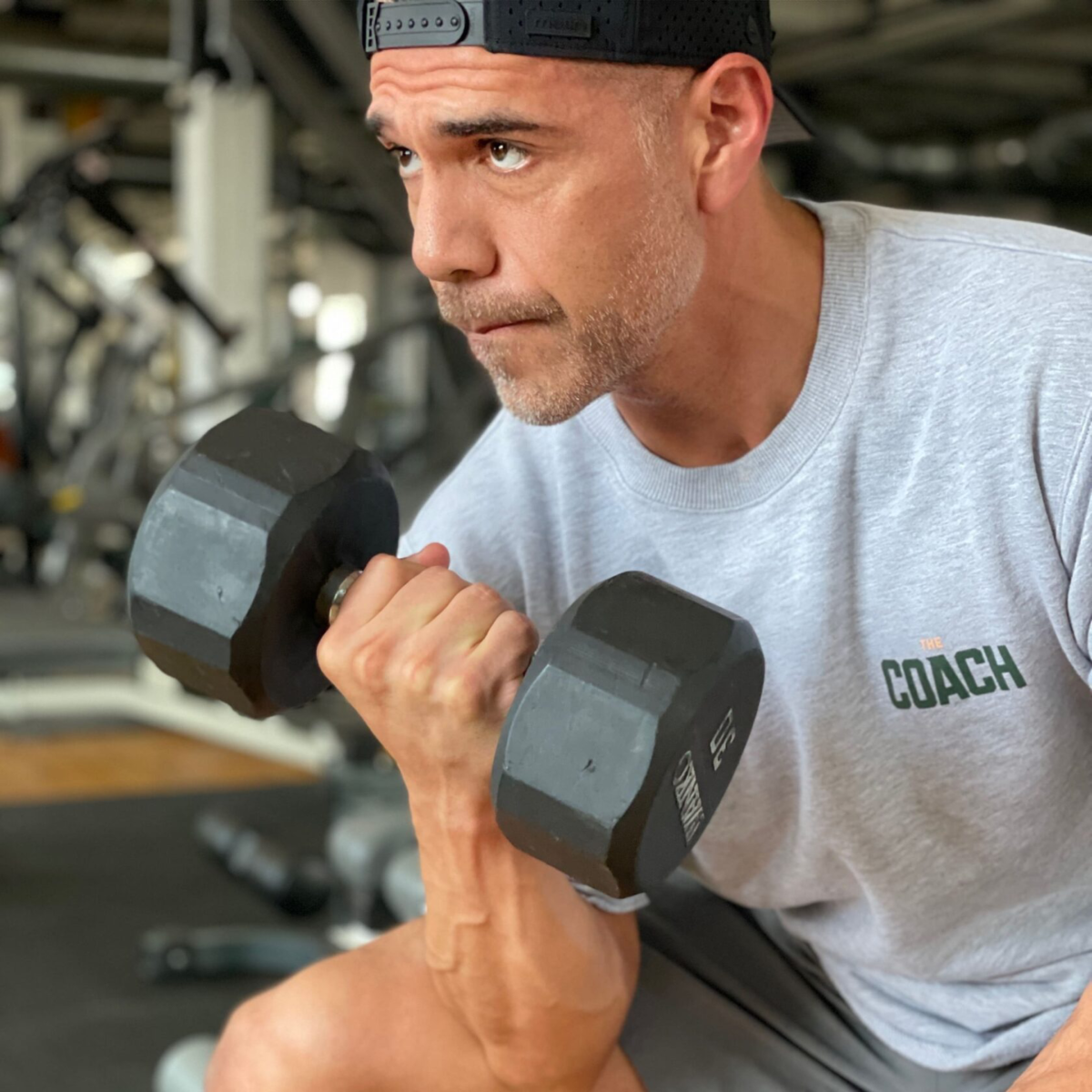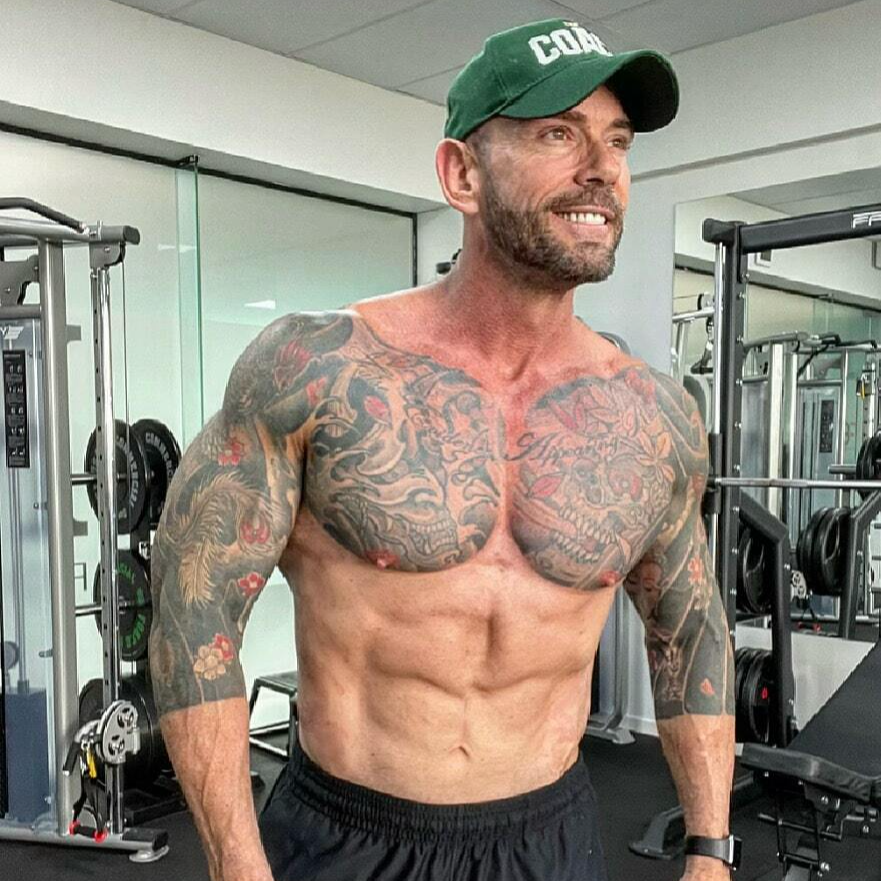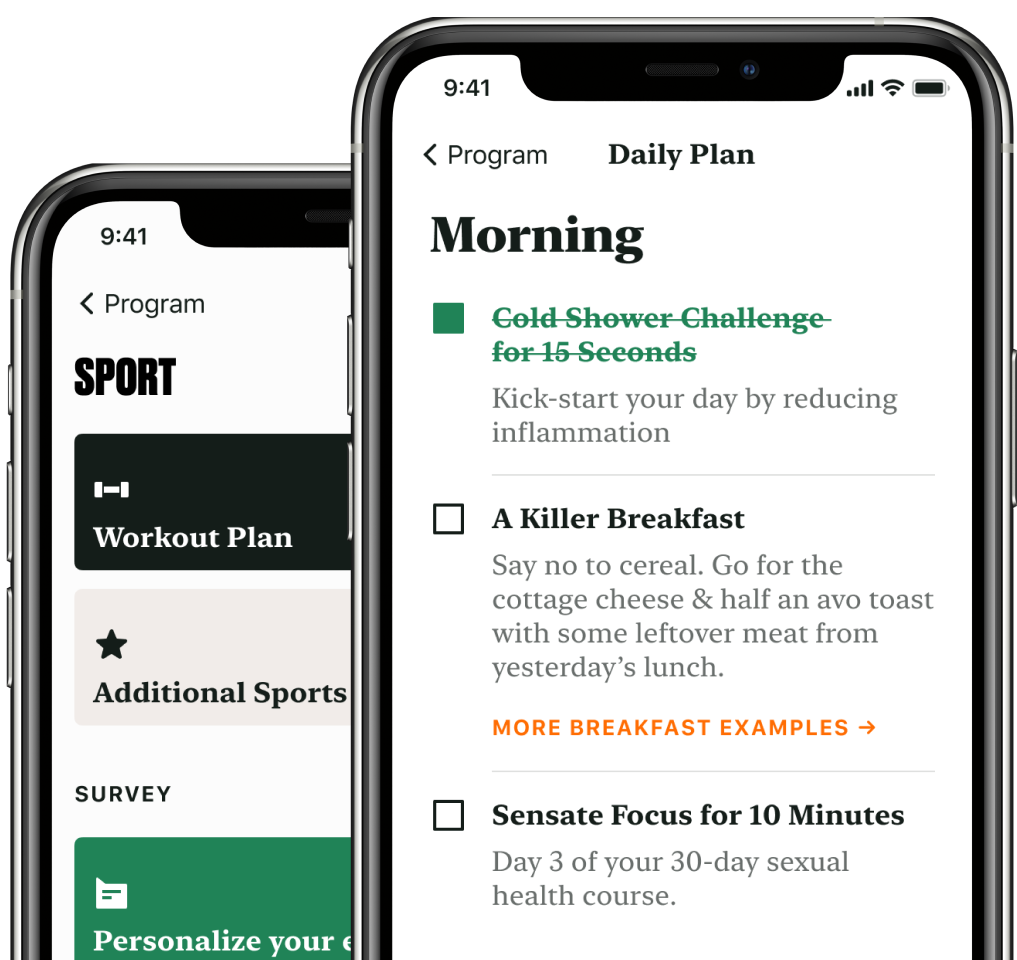Menu

If you are over 30 years old, we’ve got bad news for you. Your average testosterone level has started to drop.
No need to worry, however. It’s part of being human. A lot of men don’t suffer any change whatsoever until the late 50s. Others have early andropause symptoms in their 30s yet aren’t aware that it’s testosterone to blame.
As we get older, the body’s natural testosterone production gradually drops. But apart from aging, nowadays, many other factors accelerate the decrease in testosterone. And these are things we can control. Certain lifestyles and diets, for example, can diminish testosterone and increase estrogen, the female sex hormone (which could lead to moobs or man boobs, for instance).
So how do you know you need to pay attention to your male hormone? And most importantly, how do you address the issue if something is really off?
Well, thanks for asking! The Coach App guide you’re reading right now will answer your questions and assist with choosing a strategy to get your hormones back on track.
If you want to dive deeper into the topic, you can always jump right into The Coach App. We are the only male personalized program that fixes the hormonal imbalance and helps men worldwide feel healthier and ultimately happier.
SIGNS OF LOW TESTOSTERONE
Nope, it’s not all about erections
Yes, testosterone is pretty powerful stuff, playing a vital role in the human body. It regulates your sex drive, bone mass, muscle mass, fat distribution, strength, and the production of your red blood cells and sperm. This is why we do everything we can to keep it.
Besides low sex drive and erectile dysfunction, that most men associate suboptimal testosterone, low t-levels can manifest in many other things men don’t recognize as part of the problem:
Decreased bone mass
Depression and anxiety
Fatigue
Loss of muscle mass
Increased body fat
Diabetes and insulin resistance
Metabolic dysfunction
Infertility
Weight gain
Belly fat
Memory difficulties
Insomnia
Chronic inflammation
Poor exercise recovery
Low semen volume
Hair loss
If you experience three or more of the symptoms above, you might suffer from low testosterone levels.
WHAT IS A NORMAL T-LEVEL AFTER ALL?

And how a testosterone test is actually performed
Even if you’re sure you have a condition linked to abnormal t-levels, a blood test at a doctor’s appointment is a must.
The University of Rochester Medical Center claims normal testosterone levels in adult men range between 280 and 1,100 nanograms per deciliter (ng/dL).
However, different tests and different labs may have several varying measurement systems, so, once again, it’s crucial not to self-diagnose and talk to your doctor first.
With that being said, if the range of your test is standard and your results show testosterone levels below 300 ng/dL, a doctor may determine your testosterone as low. Time to start working on the cause!
Apart from obvious pituitary gland problems, low testosterone can be triggered by many innocent-looking lifestyle issues, from insomnia to a high-carb diet.
How to address the low testosterone issue?
The bad news is, there’s no magic pill to boost your testosterone level.
The best solution modern medicine has to offer is testosterone replacement therapy (TRT). But that’s complicated, costly, and riddled with serious side effects. Unfortunately, at the moment, this is the only way to clinically fix low testosterone levels.
That said, for those of us looking for ways to improve hormonal health to perform better at the gym, in bed, and in the workplace, there are many easy, affordable ways to ever so slightly boost testosterone levels. One small habit might not be much, but when you pick up ten of them and stay consistent for some time, the changes will be nothing short of amazing.
Here are four favorite easy ways to increase testosterone levels for healthy adult men:
#1. Go for high fat
Until recently, a low-fat diet has been celebrated as the healthiest way to eat and the best way to lose weight. Since the 1970s, most nutritionists have advised the general public to limit their fat intake and rely on carbohydrates and some protein for satiation.
Today, we know these claims aren’t as solid as they were thought to be. From the Atkins and ketogenic diets to carnivore and zero-carb ways of eating, today it’s clear that things aren’t as black-and-white when it comes to fat.
As far as testosterone levels and hormonal health are concerned, a diet rich in fat is hard to beat. Fat intake has been shown to influence testicular function, while a decrease in dietary fat has been shown to reduce the serum concentration of male sex hormones. Some studies even suggest that low-fat diets actually reduce testosterone levels in men.
What’s even more critical for optimal testosterone functioning is sufficient protein, low carb intake, and processed foods elimination. If you’re serious about your nutrition, learn here about a macro ratio to boost your T.
#2. Fix your sleep
People take pride in not sleeping and are convinced that they feel just fine. Lies. For all of us, sleep deprivation is biological havoc. Inflammation rises, cellular regeneration stops, blood pressure rises, and mental abilities suffer declines in performance. So what about testosterone?
Testosterone and the growth hormone rise during your sleep. Your body is actively using those to detoxify, repair muscle tissue, repair your adrenal glands tied to your stress level, and repair your immune system. Without enough sleep, no matter what you eat and how many times a week you’re hitting the gym, any efforts are useless. When sleep is permanently disturbed, active testosterone levels could drop by up to 20%.
The crunch: you need to get 7 to 8 hours of sleep per night to support the t-hormone. Full stop.
Struggling to sleep? Get sleep-hacking techniques from the world-leading experts here.
#3. Practice heavy lifting
Emphasis on heavy. While any workout is pretty much guaranteed to increase your testosterone levels, some forms of exercise will yield much better results. This is shown to be confirmed by multiple studies, the earliest published in the early 1980s.
Resistance training, like weightlifting, appears to be the best type of exercise to boost testosterone — just one 30-minute-long weightlifting session can increase testosterone levels by 21.6%. High-intensity interval training (HIIT) ranks a close second. And for all you joggers out there, keep in mind too much cardio may actually reduce your testosterone levels! So it might be a good idea to take up any of the three testosterone boosters above.
Get 150+ weightlifting workouts focused on growing muscle mass and boosting testosterone here.
#4. Consider supplements
While whole foods should always be the primary source of your micro-and macronutrients, sometimes supplementation can be the final piece of the puzzle. Unlike substances with a complex mechanism of action (such as nootropics), mineral and herbal supplements are generally well-researched and safe.
And while your average multivitamin pill won’t affect your hormonal health, some supplements have been shown to increase testosterone levels. If you’re interested in including them in your stack, we suggest that you take a look at the ginger root, stinging nettle, Mucuna pruriens, boron, vitamin D3, and zinc.
Learn more about supplementing for testosterone here.
THE CRUX

In most cases, any hormonal imbalance in adult men is reversible through lifestyle changes with no medication or TRT. By changing their diet, activity level, sleep, and stress regimen, men can reverse these premature aging symptoms linked to low testosterone and feel young and healthy again.
However, we understand that a lifestyle is a broad term. It’s hard figuring it all out on your own – following a meal plan, having a particular workout regimen, supplementation schedule, and meditating all in different apps or places. And it’s hard to track your progress that way too. Will your PT remind you of your daily meditation to low the cortisol?
Here at The Coach, we got your back. Our app will do the dirty job for you. We’ll create a personalized program from top specialists in male health and give one clear daily action plan to boost your male stamina and achieve your goals. The areas we cover are:
– Nutrition
– Sport
– Hair loss
– Sexual health
– Sleep
– Hormones
– Supplements
– Mental health
Bonus! The Сoach offers a 7-day free trial for you to test the features out and make up your mind.
Create your personal program and become the best version of yourself
SUBSCRIBE TO THE COACH MAGAZINE
Get exclusive content, latest research and tips on men's health from leading coaches, doctors and athletes. It's free.
By clicking “Subscribe”, you agree to receive emails from the Coach and accept our web terms of use and privacy and cookie policy
We use cookies to provide the best site experience





